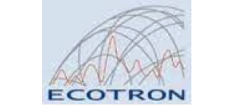Research Units Partners
Montpellier is a major national research center on biodiversity and one of the very first European centers. By bringing together eight research laboratories in the fields of ecology and evolution, the LabEx CeMEB is an integrated system bringing together more than 630 researchers and teacher researchers and 350 ITA / BIATSS (engineers, technicians and Administrative staff).
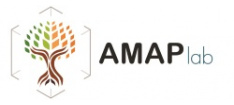
It addresses phylogenetic and evolutionary dimensions of current and fossil plants, both cultivated or growing in ‘natural’ or weakly anthropized conditions. It draws upon novel methods, many of which are developed by the group itself, such as computer-assisted identification, the analysis of plant architecture and development, the biomechanical analysis of plants, the mathematical and digital representation of organs, plants, populations and landscapes, and modelling the growth and dynamics of species and populations.
Themes: botany (systematic and structural), vegetation ecology, agronomy and forestry, computer science, mathematics and applied statistics.
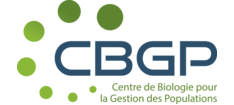
The Centre develop models in the domains of agriculture, forest science, health and biodiversity. Concepts and tools are drawn from the disciplines of systematics, genetics and ecology and the Centre is, itself, a leader in the development of certain approaches. The latter include, in particular, systematics (generic tools for taxonomic identification linked to databases designed for phylogenetic analyses) and theoretical population genetics (statistical inference methods and software development). The results are made available to partners who use them to develop diagnostic and decision support tools, and/ or to define management strategies (control or conservation).
Themes: characterization of biodiversity, biology of pests and their antagonists, the origin, evolution and consequences of biological invasions, characterization of the sources of emerging diseases, understanding the rules for community assemblies.

Much of the research looks at Mediterranean and tropical ecosystems, and is based on a trio of observations/ experiments/ theory via interdisciplinary approaches that include human and social sciences, and biomathematics. A key objective is the development of scenarios of the evolution of ecological systems, and strategies for their conservation, restoration or rehabilitation.
Themes:
- Human action, anthropized systems and conservation ecology.
- Adaptive value of life history traits in the presence of constraints.
- The role of biodiversity in the functioning of ecosystems.
- Global change and ecosystem functioning

The unit’s aims draw upon the concept of ecological engineering and propose practices designed to maintain and improve the agricultural and environmental functions of agro-ecosystems, based on current scientific knowledge.
Themes: major nutrients cycles (nitrogen and phosphorus), ecosystem regulation services, specifically carbon sequestration – carbon storage and the emission of greenhouse gases – and the ecodynamics of protein contaminants in biological preparations (viruses, prions).
It is housed in a dedicated building covering 2000 m², which is home to 3 experimental platforms: macrocosms (12 units, each covering 30 m3, 5 m²), mesocosms (24 units under construction, covering 1 to 4 m3, 0.5 to 1.0 m²) and microcosms (from 16 to more than 400 units depending on the type of ecosystem studied, with or without green plants). The first two platforms are designed for terrestrial ecosystems in natural light, while microcosms are installed in the laboratory.
The unit is developing integrative approaches that take into account environmental parameters that influence interactions at different scales: from the finest molecular mechanisms to population integration, or even the evolutionary scale.
The unit’s research lies at the interface between functional biology and population biology, and ecology and evolution. It draws upon human and experimental resources, and leading-edge technical platforms in combination with large (meta/ epi) genomic and transcriptomic datasets to develop different models, both on hosts and their associated microorganisms or pathogens.
Directeur : Christoph GRUNAU
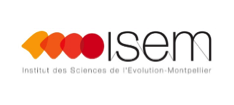
The Montpellier Institute of Evolution Sciences (Institut des Sciences de l’Évolution de Montpellier) carries out research into the origin and dynamics of biodiversity, and the modalities and mechanisms of its evolution. Its research concerns both current and past biodiversity, and covers a wide range of organisms and environments, combining field, experimental and theoretical approaches. Research encompasses: (1) the acceleration of data production, and the capacity to understand the different structural and functional dimensions of living organisms (from the gene to the ecosystem), which underpin a global understanding of the evolutionary mechanisms at the origin of biodiversity; and (2) scientific and social issues regarding the responses of biodiversity (organisms and/ or communities) to global change, which suggest a change in evolutionary research towards more applied and/ or predictive aspects.
Themes: developmental biology and evolution, environment, evolution and community ecology, integrative genomics, human evolutionary biology, fish evolution, evolutionary genetics, metapopulations, ichthyological diversity and aquaculture, evolution and domestication of the Amazonian fish fauna, genomics of adaptation, palaeontology.
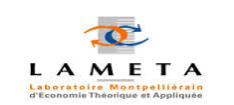
The Montpellier Laboratory of Theoretical and Applied Economics (Laboratoire Montpelliérain d’Economie Théorique et Appliquée), is an economics research unit that has historical expertise in the economics of biodiversity and ecosystem services.
Themes: analysis of objectives for the conservation of biodiversity, multidimensional indicators of biodiversity, assessments of biodiversity and ecosystem services, assessment and management of invasive species with ambivalent impacts, management and sharing of risks, management of agronomic genetic resources, assessment of Marine Protected Areas and spatial management of fisheries resources, international mechanisms for conservation policies, landscape economics and policies.
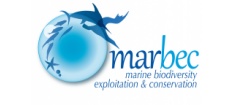
MARBEC, MARine Biodiversity, Exploitation and Conservation, is a research unit whose objective is the study of marine biodiversity in lagoon, coastal and offshore ecosystems, at different integration levels, molecular, individual, population and community aspects and the way humans use this biodiversity. It gathers some of the staff of 4 organizations: IRD, Ifremer, UM and CNRS.
This unit is spread across three main sites in metropolitan France (Sète, Montpellier, Palavas-les-Flots) and others located in the Indian Ocean, Asia, Africa and South America. It has three main objectives:
- to describe marine biodiversity, and understand its dynamics and the functioning of marine ecosystems;
- to analyse the impact of anthropogenic pressures on these ecosystems and develop global change response scenarios;
- to reconcile exploitation and conservation.
Direction : Laurent DAGORN
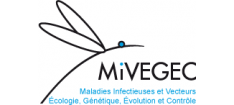
Theoretical and experimental research is conducted at the laboratory, in shared research platforms, and in the many field sites of the group. This complementarity in the skills and expertise the MIVEGEC harbours covers a broad spectrum from core fundamental research in biology, ecology and evolution, to the development of applied tools and strategies to fight infectious diseases and control their vectors.
- Descriptive: to allow the acquisition and storage of high quality data collected in the laboratory, from shared research platforms, or the field, while benefiting from the presence of personnel based in countries where diseases are endemic and strong collaboration with the national institutes that host them;
- Explanatory: by the detailed study of molecular, genetic and epigenetic mechanisms, and by explicitly accounting for population dynamics and environmental, biotic, abiotic, but also socio-economical factors, in order to explore the intrinsic and extrinsic determinants of epidemiological profiles and/or phenotypes of interest detected in the field or in the laboratory;
- Predictive: by applying theory and modelling to understand the mechanisms studied and extrapolating them in time and space, to allow the emergence of new paradigms and tools to monitor and control infectious diseases and their potential vectors.
